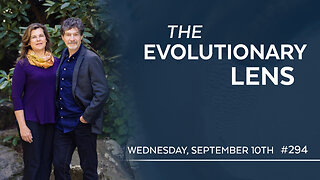Premium Only Content

Is the Christian Faith Reasonable?
Is the Christian faith a reasonable faith?
For years I have maintained it was indeed reasonable, especially in comparison to the arguments of skeptics who like to make fun of my beliefs by saying they could just as well believe in a “flying spaghetti monster”. They try to say it is just an arbitrary product of our imagination on the level of, say, a fairy tale, even though Christianity is an historic faith springing from and in the context of actual events in history.
Yet, despite the evidence, many people do become Christians more though a blind faith rather than a reasoned faith. Let me explain...
During a coffee shop conversation with a college philosophy professor named Tony, I had to admit that my awareness of the vast body of evidence in support of Christianity has grown over the years as I have had to defend my beliefs against the challenges of sceptics, and as I have experienced God working in and through my life.
Although I now confidently make the claim that Christianity is indeed a rational faith, I haven’t always been aware of the evidence, and there was a time when my faith was based more on emotion and maybe even youthful idealism and naiveté.
Similarly, in a recent conversation at the grocery store with a young lady named Alisha, I told her that the more I have read the Bible, the stronger my faith has become as I encounter its truths and live them out. But in the early days of my faith, I hadn’t read the Bible much at all. I had made a relatively blind leap of faith based, again, more on emotion than reason.
At times in my outreach conversations I have thought that I should just tell people to spend the hours necessary to read the Bible for themselves, and the hours necessary to become aware of the vast amount of historical evidence necessary for one to have a “reasonable faith” in its truths. Maybe then they would have strong beliefs in the Gospel.
But herein lies the problem – it takes faith to believe that it would be worth the time and effort it takes to read the Bible and examine the historical evidence for its truths. The same faith we would be trying to build with such an effort is the faith it would take to undertake such an effort in the first place!
So which comes first, the chicken or the egg? Or in this case, faith or the evidence required to build that faith? I’ve heard many stories of unbelievers who came to faith by reading the Bible and/or examining the historical evidence for themselves. Many were sceptics who set out to disprove Christianity only to be compelled toward faith by what they read.
But I think these are the exceptions, rather than the rule. Many Christians enter into faith more through emotion than reason, such as a particularly moving worship experience, a taste of the miraculous, or the comfort of a Christian community. As a result I think what is happening more and more is that superficial and emotion-driven Christians are being challenged by a skeptical world and have little evidence and no defense to back up their shallow faith.
Fortunately for myself, when I embraced Christianity in my teens I was impressed by the need to share my new-found faith, so I immediately began to read the Bible and examine the evidence, not just for my own faith but for all those I wanted to share it with.
This leads me to conclude that Christianity IS a reasonable faith, but that not everyone begins there. Many begin with a somewhat blind faith and would fit into the category described my Jesus where faith begins small, like a mustard seed or the faith of a small child, and grows from there into a solid tree that even provides shelter (faith) for others.
It IS reasonable to repent and believe the Gospel, and we all need to become aware of the reasons why this is so, both for the defense of our own faith and for the ability to share it with others.
-
 LIVE
LIVE
LFA TV
11 hours agoBREAKING: CHARLIE KIRK ASSASSINATED - WEDNESDAY 9/10/25
3,887 watching -
 1:14:30
1:14:30
Redacted News
1 hour agoBREAKING! CHARLIE KIRK SHOT BY ASSASSIN IN UTAH, TRUMP CALLS FOR NATIONAL PRAYERS
39.4K171 -
 3:50:27
3:50:27
Right Side Broadcasting Network
7 hours agoLIVE REPLAY: Latest News from the Trump White House - 9/10/25
165K75 -
 1:12:05
1:12:05
vivafrei
4 hours agoLegacy Media is the Enemy of the People! Israel Stikes Qatar, U.S., Gets Mad! AOC So Stupid & MORE!
56.6K53 -
 52:13
52:13
The Quartering
3 hours agoRace War Nears, Russia Makes Huge Mistake, Fauci Bombshell & More
88K69 -
 LIVE
LIVE
Dr Disrespect
5 hours ago🔴LIVE - DR DISRESPECT - THE FINALS - NEW SEASON 8 LAUNCH EVENT W/ THE SHOTTY BOYS
1,401 watching -
 1:44:11
1:44:11
Darkhorse Podcast
4 hours agoThe 294th Evolutionary Lens with Bret Weinstein and Heather Heying
48.5K12 -
 11:49
11:49
Dr. Nick Zyrowski
9 days ago12 Unusual NAC ( N-Acetyl Cysteine) Questions Nobody Ever Answers
83.7K10 -
 1:03:45
1:03:45
Russell Brand
5 hours agoWW3 IMMINENT! Israel & Russia Strikes Leave World “ON THE BRINK” - SF631
185K66 -
 56:18
56:18
Tucker Carlson
4 hours agoSam Altman on God, Elon Musk and the Mysterious Death of His Former Employee
87.6K106